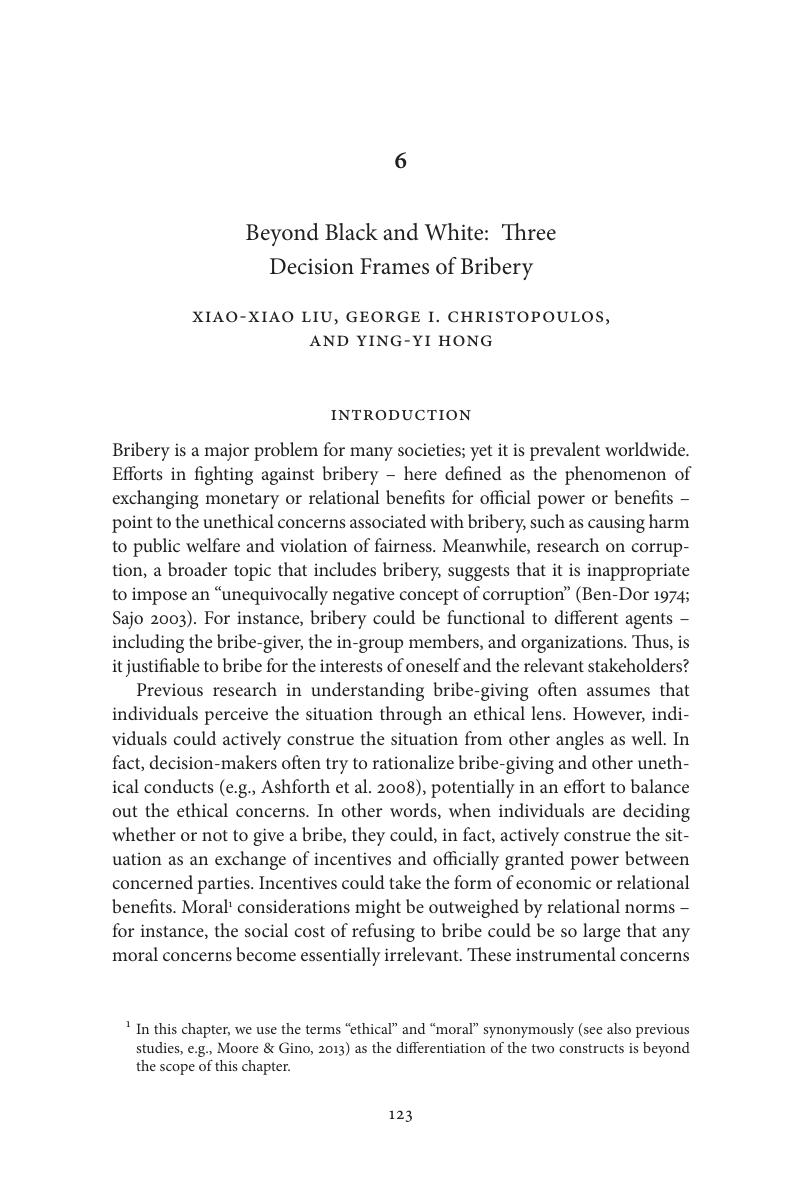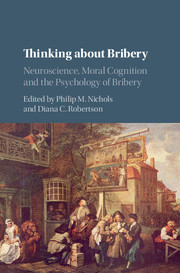Book contents
- Thinking about Bribery
- Thinking about Bribery
- Copyright page
- Dedication
- Contents
- Figures
- Tables
- Contributors
- Acknowledgments
- 1 Introduction and Overview: Bribery and the Study of Decision Making
- Part I Structure and Mechanics of the Brain
- Part II Moral Cognition and Bribery
- Part III Psychological Insights into Bribery
- 6 Beyond Black and White: Three Decision Frames of Bribery
- 7 Effect of Reminders of Personal Sacrifice and Suggested Rationalizations on Residents’ Self-Reported Willingness to Accept Gifts: A Randomized Trial
- Part IV Norms and the Decision to Engage in Bribery
- Index
- References
6 - Beyond Black and White: Three Decision Frames of Bribery
from Part III - Psychological Insights into Bribery
Published online by Cambridge University Press: 28 September 2017
- Thinking about Bribery
- Thinking about Bribery
- Copyright page
- Dedication
- Contents
- Figures
- Tables
- Contributors
- Acknowledgments
- 1 Introduction and Overview: Bribery and the Study of Decision Making
- Part I Structure and Mechanics of the Brain
- Part II Moral Cognition and Bribery
- Part III Psychological Insights into Bribery
- 6 Beyond Black and White: Three Decision Frames of Bribery
- 7 Effect of Reminders of Personal Sacrifice and Suggested Rationalizations on Residents’ Self-Reported Willingness to Accept Gifts: A Randomized Trial
- Part IV Norms and the Decision to Engage in Bribery
- Index
- References
Summary

- Type
- Chapter
- Information
- Thinking about BriberyNeuroscience, Moral Cognition and the Psychology of Bribery, pp. 121 - 122Publisher: Cambridge University PressPrint publication year: 2017
References
- 5
- Cited by



